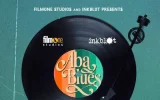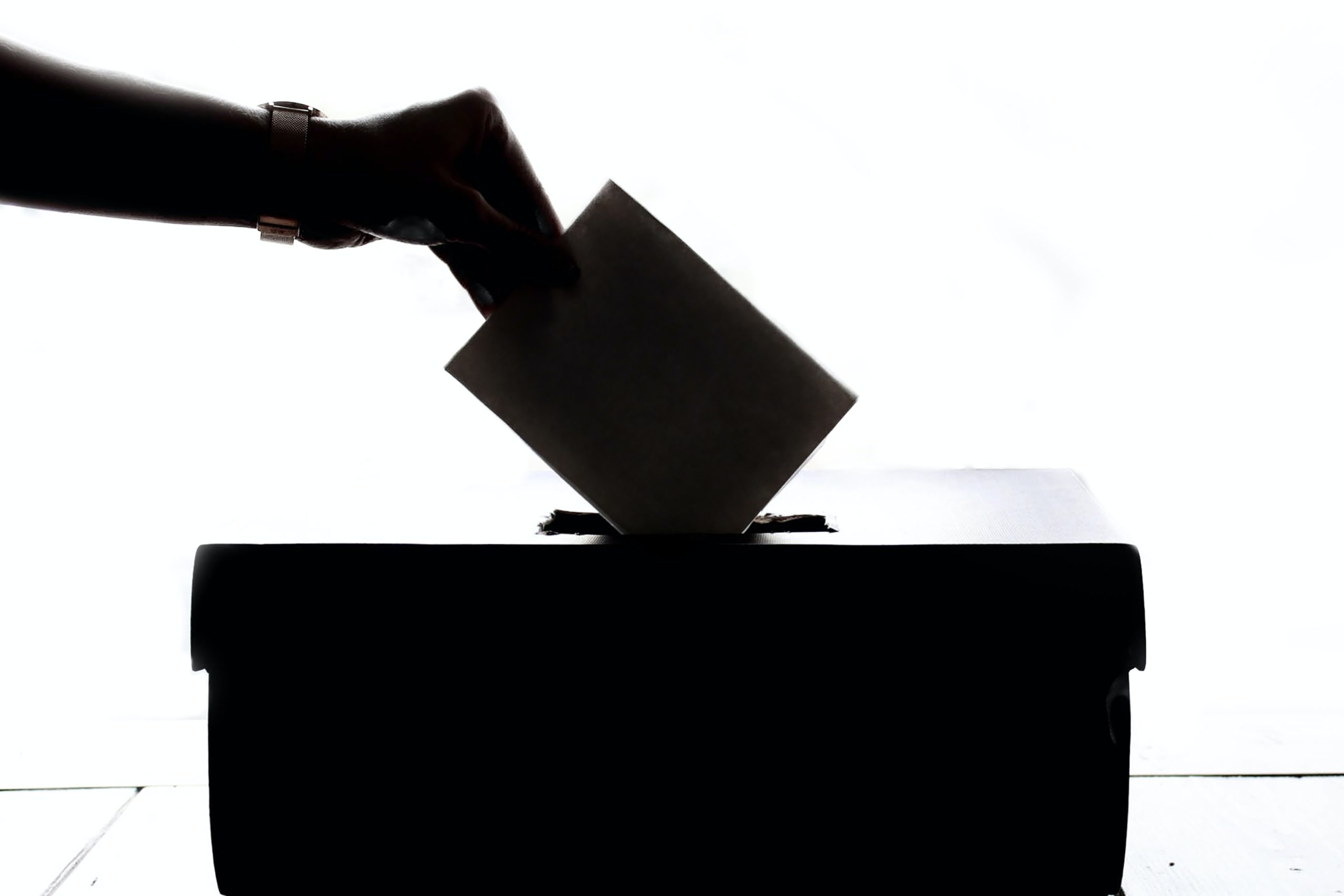“It is very lonely being a feminist. It is very lonely being the odd one that thinks differently about the role of women in society. Knowing that there are other people like you, that think like you and will support you is very healing for whatever emotional, mental trauma that you might have…”
Damilola Odufuwa is a breath of fresh air. How she looks at the world, her urge to propel change and the way every octave in her voice screams ‘women-empowerment’ makes her completely inspiring.
The 30-year old media personality spoke to YNaija’s Toluwanimi Onakoya about her women-only incentive, ‘Wine and Whine;’ the value it affords women and the role it plays in combating rape culture.
1. As the founder of Wine and Whine, what did you hope to achieve establishing this exclusive community for women?
I am the co-founder of Wine and Whine and Odunayo Eweniyi is also the co-founder. What I hoped to achieve when I reached out to Odun with the idea was I wanted women to feel safe when they have conversations about the impact of the patriarchy. I found that whenever women spoke on social media about what it’s like being a woman in Nigeria, there’s a lot of chants of ‘Oh you are complaining or you are lying.’
There’s a lot of disbelief, a lot of mocking. While there might be many women that would come to your defence, it feels very frustrating. Growing up and just being around a lot of people, you see there’s always this idea of women whining whenever they talk about the issues they face. I just wanted women to be able to ‘whine and complain’ about the patriarchy and the misogyny they are faced with, in a safe space with other women, so they could feel understood. Essentially, I wanted a safe place for women where we could drink, have fun, complain and create change.
Another thing we are trying to do at Wine and Whine, beyond addressing this is we raise money with our events for women-focused charities to be supported e.g Sanitary Aid Initiative, STER and others.
2. What were the challenges you faced?
To be honest, we’ve gotten a lot of support. One thing that has been humbling in a beautiful way is how women always say they had such a great time. They didn’t have to worry about someone spiking their drink. They could be free. They could turn up if they wanted to and that’s very beautiful to see. Wine and Whine also had a lot of support from friends and people that we knew.
In terms of the real challenges we faced, one was a lot of negativity typically from the men on Twitter, saying why do women want to have an event for just women or how are you going to have a party with just women -it would be boring.
Obviously, they are just haters hating from outside of the club.
Another challenge that we have faced is finding the right venue for events at a really limited cost because Odun and I typically fund the events from our pockets and when we do charge, we give a proportion of our proceeds to charity. We always try to keep the charges as low as N1,000 or N5,000 because we want it to be accessible to many women, students. So the challenges have just been raising money and locating venues.
3. One of the biggest retorts, specifically from men, to the incentive of a female-only community is that a male version would be met with outrage and accusations of discrimination. What is your response to this?
We don’t actually care what men think about us quite frankly. As long as women are having a great time, feeling connected to other women, building communities and feeling like they are not alone, then we are happy.
However, to give a more detailed answer; men-only spaces already exist every single day in every environment whether it’s in politics, in the workplace or the exclusion of women in society. It’s already a man’s world. If the world was fairer, if we didn’t live in a patriarchal society we wouldn’t actually need to create women-only spaces. Of course, female communities are important but in this case, it won’t be so vital for survival.
Wine and Whine tries to address improving men and women’s mental and emotional health. Before I started this, I didn’t feel like a lot of organisations that focused on women’s issues addressed that. It is very lonely being a feminist. It is very lonely being the odd one that thinks differently about the role of women in society. Knowing that there are other people like you, that think like you and will support you is very healing for whatever emotional, mental trauma that you might have.
4. Feminism generally operates on an idea of inclusion and commonality, but the institution of a woman-only space is exclusive in nature- Can this be considered counterproductive?
My definition of feminism is the person who believes in the political, social, economic equality of the sexes and I think that women-only spaces don’t affect that. We are striving for equality and that’s what feminism does.
Right now, this idea of feminism means women want to be above men is ridiculous. Women are unfortunately not even equal to men and for us to be equal to men, we need access to certain things. We need advantages, benefits and opportunities just for us to even level the playing field. In terms of it not being inclusive, I think that women feel safer around other women regardless of their intersection.
READ ALSO: The YNaija #RapeCulture Special Series: A glossary of terms
Whether it’s women with different abilities, different sexual orientations or trans women- my feminism includes trans women, women feel safer and connected to other women. Sometimes when men enter those spaces, because of the way the world is, there is a lot of mansplaining. There’s a lot of talking over women, making the movement about them and that’s something that we always see.
I think men who want to support women should amplify their platform. So for men who feel excluded, if you were really a feminist you won’t feel excluded but you would feel your job would be to amplify these spaces, let other women know about these spaces and support them.
5. There are increasing reports of women being roofied and subsequently molested at parties and clubs, how do you think Wine and Whine is helping to combat rape culture?
Literally, by existing, we are combating rape culture. By giving women a space to let their hair down and not be stressed. Unfortunately, we live in a world where women have to go out and worry about everything. What you’re wearing. How you’re dancing so the guy doesn’t get the wrong idea.
Honestly, it’s really frustrating that women have to have their guard up every time and try to prevent these things from happening or protect ourselves when they do happen.
Rape culture in Nigeria is really rampant and I think it’s something we would always have to discuss. We’ve had events themed around that and around women who have encountered that. We gave out free pepper spray to women and a couple of other self-defence items. We partnered with Stand to end Rape to sensitise women on consent and consensual relationships. We don’t offer mental health services around sexual trauma but people at Stand To End Rape do that. We try to create a community, inform others about all these initiatives doing the work and also give them whatever tools we can to fight this culture.
6. What other values do you think these women-only spaces offer women?
Safety. Knowing that for a few hours when you’re having fun, with your hair down, you are actually safe- no one is going to spike your drink, no one is going to attack you. You are allowed to voice your opinions. At every Wine and Whine, we open the floor for everybody to express themselves. There is safety there. There is a community.
We also try to provide skills for women. We have a theme for every event, whether its leadership, financial literacy, self-defence, sexual harassment- there is always a theme. It is a chance to network with other women, to learn a lot about these topics from experts. Women-only spaces provide a positive impact on women’s mental and emotional health. It’s a great space for women to build a financial network with other women who think like you.
It is time for us to use our network to get money and power in this world. I think for women to be treated as equal to men, we need to be financially equal to men.
7. Why are women spaces critical to female autonomy, and should we be replicating “Wine and Whines” in the workplace setting as well?
My dream would be to have women spaces everywhere. I love working with women. I work with some of the most competent and I always have. Before my current role, I worked for a women’s media publication with a bunch of really brilliant and talented women. It was so nice to be able to have every single conversation at work.
It was so nice that we were all cold at the same time. There’s this thing about how office spaces are always too cold for women because it is set to men’s preferred temperatures because they wear suits. I would love love love to have women-only spaces in the workplace, in other settings.
However, we share this space and work with men so what we need is for men to make sure that the spaces they occupy with women are safe and welcoming to women. There are feminist spaces, spaces where women are treated as equal, that’s what I would really like to see.
8. Wine and Whine seems like a very fun, light-hearted space. Are there any plans to extend services that it provides women such as services targeted at victims of gender-based violence?
We always partner with women-focused NGOs; part of our work is to raise awareness for them. We know what our strengths are and limitations. We are not experts in certain things. We are not an NGO. We don’t have the talent, capabilities and the know-how Stand To End Rape has- and that’s okay. That’s why our job is to amplify them.
We fund-raise. We’ve raised 3 million for women’s legal funds -women who accused people of rape on social media who were now threatened with pseudo lawyers. We raise money for their defence. So that’s one thing we do- we try to support victims of sexual violence with money.
I think that it’s really important that rather than everyone just repeating things that already exist, let’s amplify the communities and the organisations doing the work. Let’s give them the money, awareness, room, volunteer and support them. Giving spaces where women can work, therapists for any trauma they are going through and daycare for women with kids. That’s what I would really like to see.
9. What was that personal experience that shifted your perspective and caused a change from you identifying with a movement to actively participating in that movement?
This is a life-long situation. I have always felt inclined to do more beyond my day-to-day work. I always felt angry about the oppression of people. I’ve just always hated injustice whether it was in school when people were picking on other people. I didn’t like that and it’s something that has always been in my heart from a young age.
Also being the only girl and having older siblings and hearing things like ‘you are a girl’, ‘this is your role’, ‘it’s your job to cook’, and all sort of weird, toxic sh*t. That really made me angry. I didn’t like that because I was a girl, I couldn’t do basic human things that I wanted to do.
I just couldn’t sit back. There was no moment that made me say I want to participate per se, it’s been a lifelong thing. I remember when I was 23…22 years old, I went to see Beyonce’s concert. I loved that she had a woman only band. She’s taken the time to show that women can be bass guitar players, drummers and amazing dancers. I wanted to create that for women in my own way. Overall, with my work even before my current role now, I worked in media previously and I always wanted to amplify women stories and give women space. I think it would be stupid to be a woman and not have your own back.
READ ALSO: Rape Culture endangers Muslim women too | The YNaija #RapeCulture Special Series
I think for us to actually see change, everyone has to play a part and I don’t think that part has to be found in an organisation. It could be volunteering and donating to the community. It could also be amplifying stories on social media of injustice against women; using your political influence, financial influence to make sure we get the right people in the office.
There is a part everyone can play and I think that for us to have real change, everyone has to step up in every way that they can.
The YNaija #RapeCulture Special Series will run from September 15th to September 30th. Visit YNaija.com/Specials to catch up on all essays and excerpts from our Instagram interviews.












